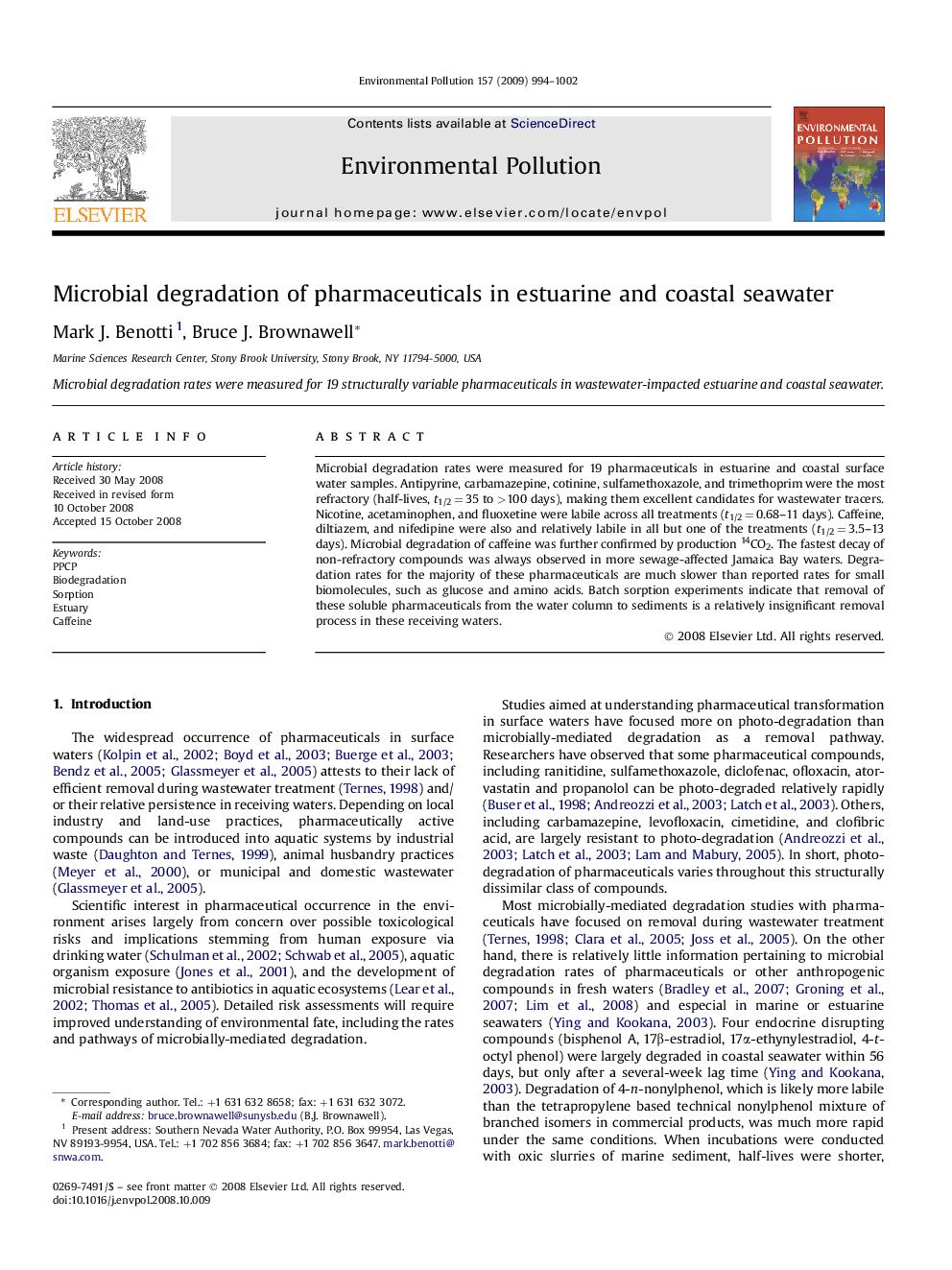| کد مقاله | کد نشریه | سال انتشار | مقاله انگلیسی | نسخه تمام متن |
|---|---|---|---|---|
| 4426613 | 1309130 | 2009 | 9 صفحه PDF | دانلود رایگان |

Microbial degradation rates were measured for 19 pharmaceuticals in estuarine and coastal surface water samples. Antipyrine, carbamazepine, cotinine, sulfamethoxazole, and trimethoprim were the most refractory (half-lives, t1/2 = 35 to >100 days), making them excellent candidates for wastewater tracers. Nicotine, acetaminophen, and fluoxetine were labile across all treatments (t1/2 = 0.68–11 days). Caffeine, diltiazem, and nifedipine were also and relatively labile in all but one of the treatments (t1/2 = 3.5–13 days). Microbial degradation of caffeine was further confirmed by production 14CO2. The fastest decay of non-refractory compounds was always observed in more sewage-affected Jamaica Bay waters. Degradation rates for the majority of these pharmaceuticals are much slower than reported rates for small biomolecules, such as glucose and amino acids. Batch sorption experiments indicate that removal of these soluble pharmaceuticals from the water column to sediments is a relatively insignificant removal process in these receiving waters.
Journal: Environmental Pollution - Volume 157, Issue 3, March 2009, Pages 994–1002